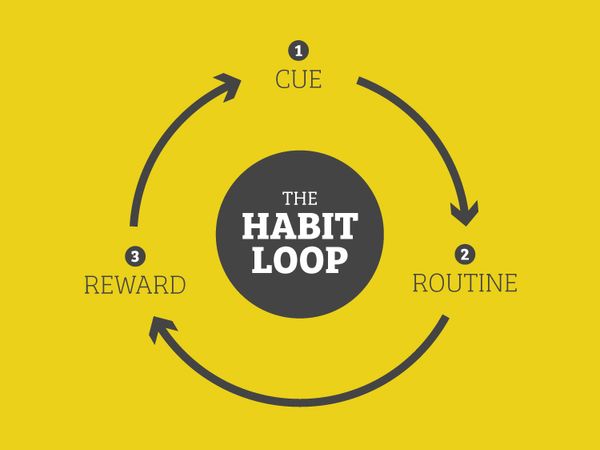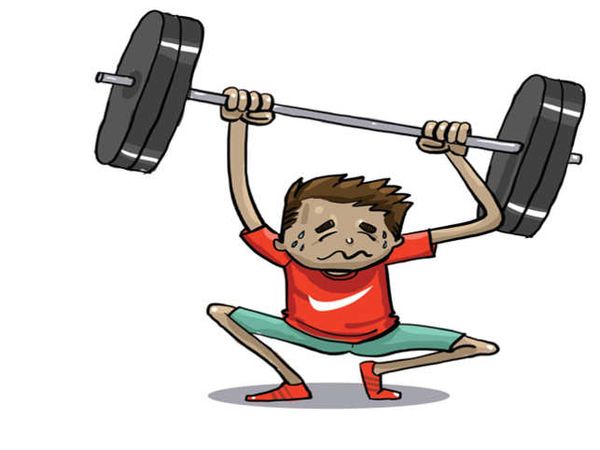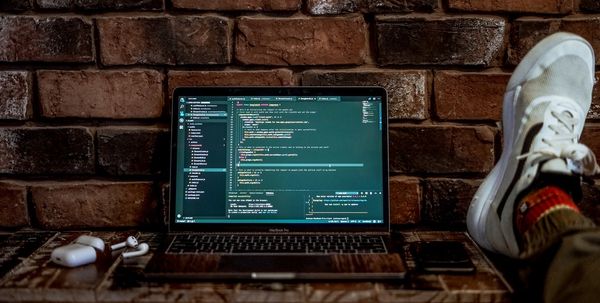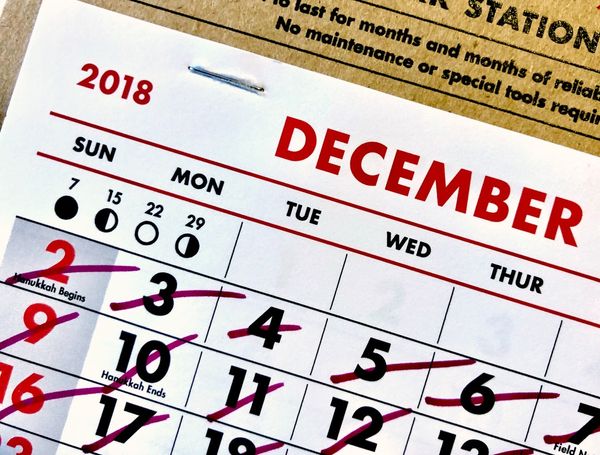The most important thing to learn ANY language (the foundation)
The one thing
There are some great methods for learning a language depending on your level, experience, personal preference and other factors. Watching movies can be great for intermediate to advanced learners but beginners may struggle. Some people might love grammar exercises and for others they fill them with a sense of despair.
However, without ONE thing all efforts are bound to fail. I learnt almost zero spanish until I learnt this one thing, and then I became fluent in 6 months.
What is this one thing?
Habit.
Specifically, your language learning habit or habits. What do I mean and why is it so important? Let's look at the what and then the why.
What
There are two useful ways to think about habits;
1. The first is as a loop

The cue: a signal to do the routine
The routine: what you do
The reward: what you get from it.
A good example is
1. Smell cookie (cue; it makes you want to eat the cookie)
2. Eat cookie (routine)
3. Feel good (reward)
For a language learning habit it might be:
1. Wake up (cue)
2. Study 10 flashcards (routine)
3. Eat a delicious breakfast (reward)
or
1. Get home from work (cue)
2. Watch netflix in the language you are learning (routine)
3. Watch netflix in the language you are learning (reward)
In this example netflix is the routine AND the reward; you're learning but it also feels good.
So to really learn a language, you need to think about your habits. The best way to learn is to do a little EVERY DAY. It's better to study 3 minutes a day, every day than 3 hours once and then nothing for months. Make sure you have a cue you can't forget, a routine that is helpful (and not too long) and a reward such as music or food to reinforce the habit.
2 The second way to think about habits is that habits are like weights in the gym.
Trying to start a new, every day habit like reading a book in the language you're learning is like saying "I'm going to lift __ kilograms in the gym every day".
The mistake people make is choosing too big a weight, or too difficult a habit. "I'm going to read for one hour every day in english" is like "I'm going to lift 100 kilograms every day".

Maybe the first day is easy and fun. Then the second day is more difficult. The third day you get home from work, you are tired, and you don't want to read for an hour. Bye bye habit.
It's much better to start off with a "light" habit like reading for 5 minutes. Then when it's easy every day you can increase the time.
Why
Why are habits so important? Why can you not just study when you feel like it? Well there are two reasons.
1. It saves energy
A habit is like a computer program; if you write it well, you can let it run and it will do the work for you. A habit is a program for your brain; it means your brain does not have to think about wht to do it just does it. You will notice tht after one week of doing a habit (if you follow the steps!) it will feel easier. After 2 months it will become automatic.

2. It's regular
Just studying when we feel like it is dangerous. We may study a lot one day and then not study for a week. Then you start to feel bad becuse you are not making progress. With a habit there is no decision: you just do it every day at the same time.

Summary
Have a clear cue: habits work best if you do them at the same time and same place every day. Example: wake up in the morning.
Have a routine that IS NOT TOO HEAVY. Example: read a book in english for 5 minutes.
Have a reward. Example: listen to your favourite music.
Another good strategy is to choose habits that are rewarding themselves; like watching netflix or listening to music in the language you're learning.

That's it! I used these ideas to build my habits when I was learning spanish, and now I am fluent. Please ask me if you have any questions :) thank you.
2019년 7월 3일





